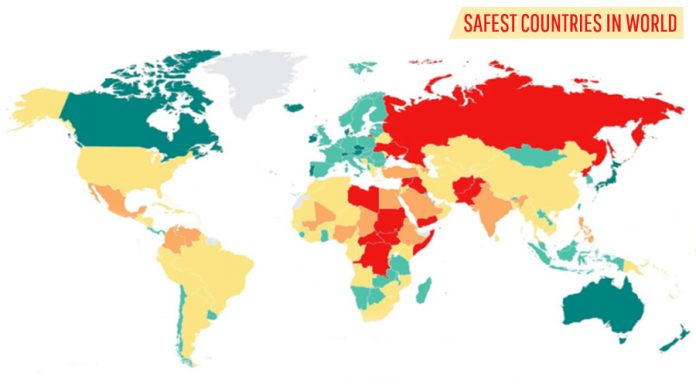The Global Peace Index is one of the World’s most secure countries ranking. This report is published annually by the Institute for Economics and Peace. This non-partisan, non-profit independent organization focuses on peace in the World in a positive, viable, and tangible way.’ The report investigates the safest and most dangerous countries.
The factors that are included in this report are:
- Number of conflicts of violence within and outside
- The level of suspicion
- Politically unstable
- Terrorist potential Potential
- Number of killings
- Military costs as a GDP percentage
Europe is on rank one of the 25 safest countries. Europe has not seen a safety decrease since 2009 as the only continent. In the top 25, Asia is the second most common area. The homicide rate in both regions is around three per 100,000 people.
The Nordic countries of Europe are in particular. All of the top 25 safest countries are Norway, Sweden, Denmark, Iceland, and Finland, so the region of Iceland is considered the safest in the World. In the region, the homicide rate is 0.8 per 100,000 population. So, here the top 12 safest countries in the World are as follows:
- Iceland
- New Zealand
- Ireland
- Denmark
- Austria
- Portugal
- Slovenia
- Czech Republic
- Singapore
- Japan
- Switzerland
- Canada
12. Canada
| Population: | 38,659,546 |
| Growth Rate: | 0.93% (113th) |
| World Percentage: | 0.48% |
| Peace Index: | 1.389 |
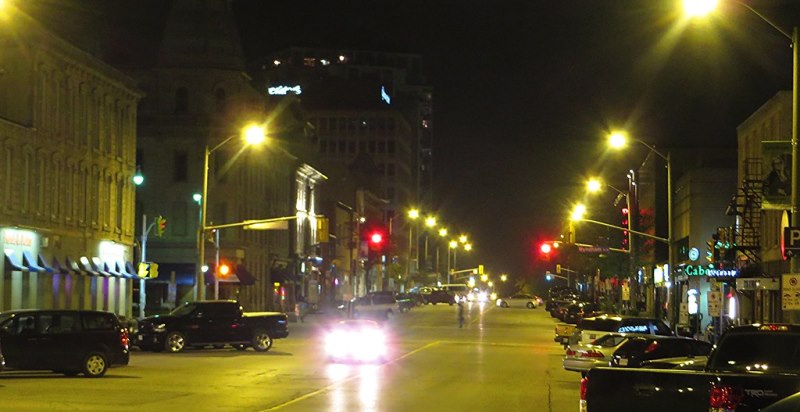
Under the 2018 Global Peace Index, Canada is the 12th safest country in the World and retains its position. In particular, Canada’s highest-paid country received good results in terms of domestic conflicts, crime levels, and political stability. Canada has some of the World’s most notoriously friendly people in addition to good work opportunities, great access to health, and good governance. Canada’s crime rate is about one-third that of the United States, its neighbor. Eighty-four percent of Canadians said they were safe in their country in a 2018 Gallup survey.
11. Switzerland
| Population: | 8,776,008 |
| Growth Rate: | 0.65% (141st) |
| World Percentage: | 0.11% |
| Peace Index: | 1.357 |
With a score of 1.357, Switzerland rounds out the top eleven safest nations. In the safety and security category, Switzerland drops one spot from 2019 to place in the top five. Switzerland consistently placed in the top 10 exporters of weapons per capita over the past five years, along with several other extremely peaceful nations. However, Switzerland has one of the lowest rates of continuing domestic and international violence and ranks fourth worldwide for food security.
10. Japan
| Population: | 123,540,680 |
| Growth Rate: | -0.47% (225th) |
| World Percentage: | 1.54% |
| Peace Index: | 1.336 |
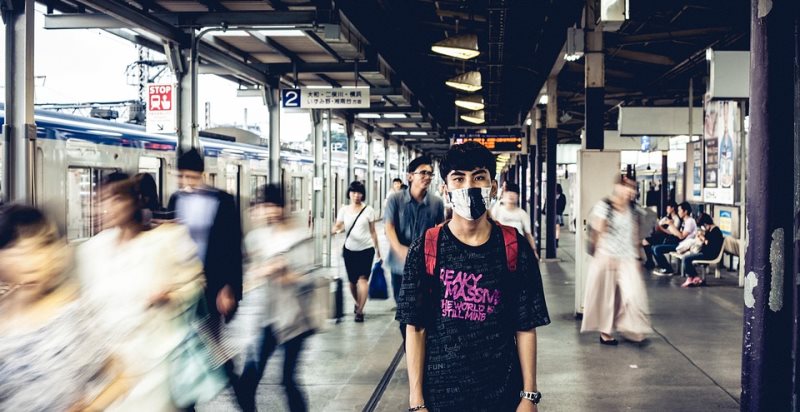
Japan is the World’s tenth most secure country. For 14 years, Japan’s most powerful military country has always received high marks for low crime, internal conflict, and political terror as the top ten countries in the Global Peace Index. Japan’s disturbing relations with its neighbors and the country’s increasing scale and power of self-defense forces are areas of concern. Japan is known for limited immigration and limited firearms access. Japan does not see firearm carriage as a person’s right. According to the Safe Cities Index of the Economist Intelligence Unit, Tokyo is the safest city in the World and the second most important for healthcare.
9. Singapore
| Population: | 6,000,388 |
| Growth Rate: | 0.68% (138th) |
| World Percentage: | 0.08% |
| Peace Index: | 1.326 |
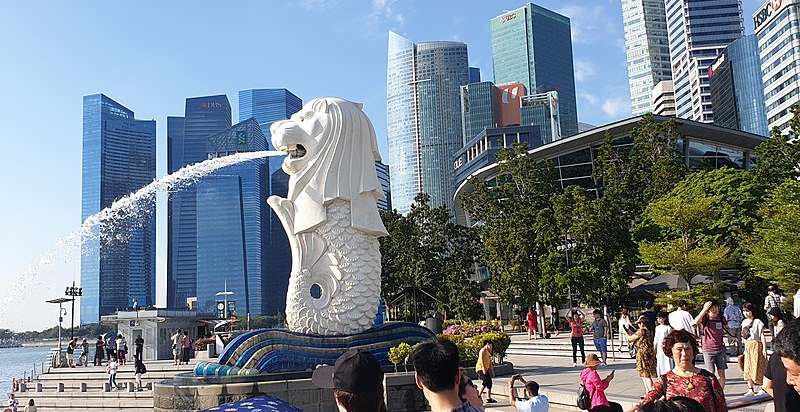
Singaporeans felt the highest sense of personal security and had a positive experience with law enforcement in the same Gallup 2018 report. Singapore has one of the richest countries and the World’s most despicable crime rates due to severe penalties, even for small crimes. In Singapore, violent and aggressive crimes are scarce, and the government and police strictly control weapons and other firearms. In the Safe country Index of the Economist Intelligence Unit, the country is the second safest in the World (EIU). Infrastructure security and personal security, Singapore was ranked second in digital terms.
8. The Czech Republic
| Population: | 10,491,703 |
| Growth Rate: | -0.07% (196th) |
| World Percentage: | 0.13% |
| Peace Index: | 1.318 |

The Czech Republic is one of the World’s ten safest countries. From its 2018 ranking, the Slavic country Czech Republic fell from 8 to 10. Over the years, crimes, particularly violent crimes, have declined steadily. However, the country’s weapons are relatively easy to access. The terrorist impact on the Czech Republic is also low. The country’s rankings have declined due to its relatively high engagement in foreign conflicts, the high per capita proportion of prisoners, and the security and police assessment.
7. Slovenia
| Population: | 2,119,840 |
| Growth Rate: | 0.13% (198th) |
| World Percentage: | 0.03% |
| Peace Index: | 1.316 |
Slovenia, one of the former Yugoslavia countries, received top marks in not just one, but three distinct categories: travel security, health risks, and road safety. Slovenia, like many Slavic nations, ushered in democracy in the middle of the 1990s and is now committed to raising standards of living in a variety of areas, such as sustainability and safety.
6. Portugal
| Population: | 10,256,467 |
| Growth Rate: | -0.08% (213th) |
| World Percentage: | 0.13% |
| Peace Index: | 1.301 |
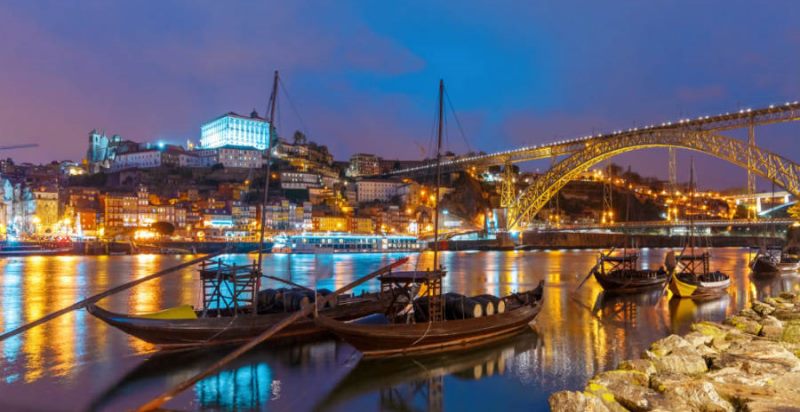
The cheapest land is available in the most peaceful countries, and Portugal ranks third as the safest place. Portugal finished 18th in the World in 2014 and is now ranked sixth since 2014. Portugal has armed police, but contrary to Iceland and New Zealand increased police presence in the country has reduced the crime rate.
Portugal has revived economically in the last six years, from more than 17 percent to less than 7 percent. Portugal is ranked as the best retirement country in 2020 in the annual global retirement index, owing to its safety level.
5. Austria
| Population: | 8,951,932 |
| Growth Rate: | 0.27% (180th) |
| World Percentage: | 0.11% |
| Peace Index: | 1.300 |
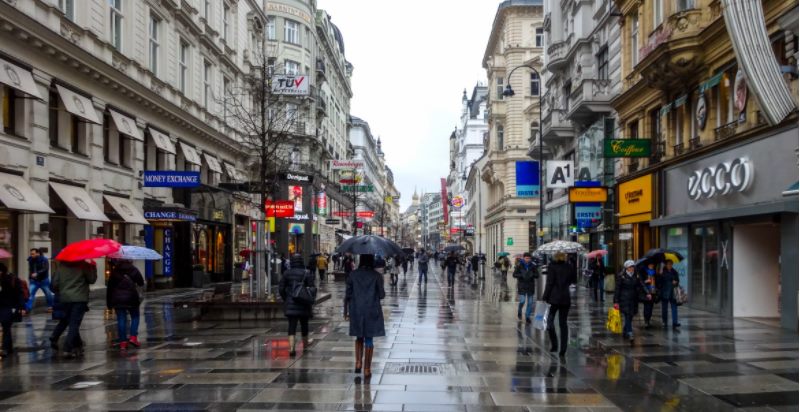
Austria is the World’s fifth most secure country. The rankings in 2019 improved Austria in several spheres, including increased UN peacekeeping funding, arms exports, and a reduced impact on terrorism. However, after the elections in October 2017 for the People’s Party of Sebastian Kurz, Austria witnessed a worsening probability of violent demonstrations.
Social unrest has increased because of the country’s political instability. A very safe country to visit is Austria, otherwise. Serious crimes are rare, although pickpockets and purse-snatchers should be aware of them. Moreover, any significant acts of terrorism have spared Austria.
4. Denmark
| Population: | 5,900,217 |
| Growth Rate: | 0.5% (155th) |
| World Percentage: | 0.07% |
| Peace Index: | 1.296 |
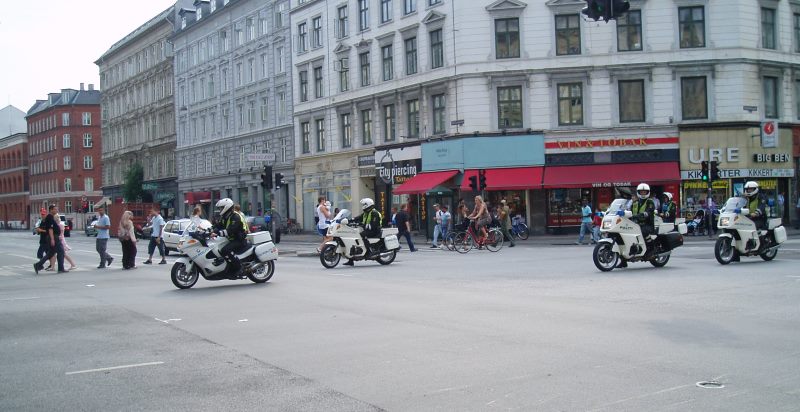
Denmark is one of the World’s most reliable and happiest nations, ranked fourth on the Global Peace Index. Denmark is one of the only nations where people, including children, report that they feel safe at all times of day or night. Denmark has a high level of equity and a strong sense of collective social responsibility, which contributes to Denmark’s safety and happiness.
Corruption is rare in business or politics because honesty and confidence in Denmark are the highest priorities. Denmark is also a welfare state, so everybody receives services and benefits to live comfortably. In Denmark, everybody has access to the best healthcare without extra fees.
3. Ireland
| Population: | 5,044,567 |
| Growth Rate: | 0.9% (136th) |
| World Percentage: | 0.06% |
| Peace Index: | 1.288 |
Ireland significantly improved its level of peace in 2021, moving up the rankings from 11th to third in 2022. Outside of of a a few city neighborhoods, crime is surprisingly low and there isn’t much of a risk from terrorism or acts of cultural violence.
Ireland’s spectacular cliffs and winding country lanes should be respected, particularly during an unexpected rainstorm or in regions without cell service. In reality, the country’s landscape may be more dangerous than its inhabitants.
2. New Zealand
| Population: | 5,212,306 |
| Growth Rate: | 1.56% (117th) |
| World Percentage: | 0.07% |
| Peace Index: | 1.269 |
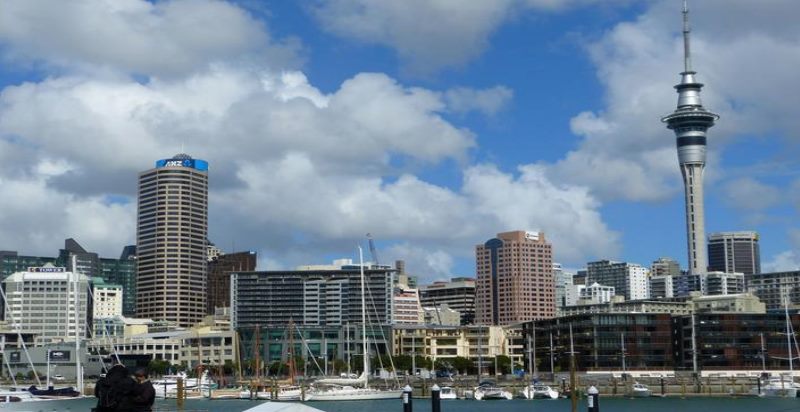
The second safest nation in the World is New Zealand. New Zealand has a very low rate of crime, particularly violent crimes, just like Iceland. But theft, especially for tourists, is a common occurrence. Unlike its down-under neighbor, Australia, New Zealand has no deadly animals known to have dangerous wildlife.
New Zealand’s score was slightly lower than before, owing to two Christchurch mosques that killed 51 people on 15 March 2019. New Zealanders are generally open-minded and have legislation to avoid the abuse of the freedom of speech or expression of anybody. Police do not carry personal firearms like in Iceland or New Zealand.
1. Iceland
| Population: | 374,425 |
| Growth Rate: | 1.24% (139th) |
| World Percentage: | 0.00% |
| Peace Index: | 1.107 |
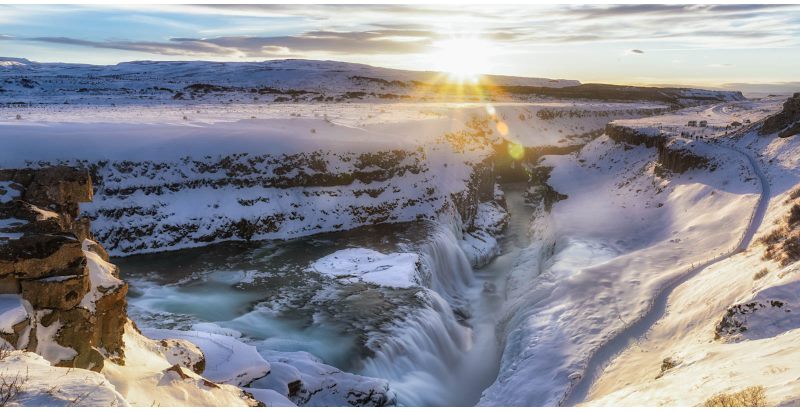
Under the Global Peace Index, Iceland is the safest and best country in the World for the 14th consecutive year. Iceland is a Nordic country with a population of 374,425, which is relatively small. Due to its high standard of living, poor people, strong social attitudes towards crime, highest life expectancy, high confidence in its highly qualified policing force, and a lack of social and economic tension, Iceland has a very low crime level.
Iceland has no military, and the police are not carrying firearms (only extendable batons and pepper spray). Iceland also has legislation to provide for equal rights, such as equal sex, equal sex law, and religious freedom.
Five Least Safest Countries
If you are still curious to find the data of the Top Five least safest Countries in the World, then here you can go!
5. Yemen
| Population: | 30,490,640 |
| Growth Rate: | 2.33% (44th) |
| World Percentage: | 0.39% |
| Peace Index: | 3.412 |
Terrorists, criminal elements, and non-governmental citizens continue to threaten the kidnapping/arrest in Yemen. Here western workers can be targeted for attack or abduction. Significant destruction of infrastructure, housing, medicine, schooling, and energy and water supplies was caused by military conflict. This restricts electricity, clean water, and the best healthcare availability. This instability often hampers humanitarian organizations’ ability to provide food, medicine, and water that are critical. The country continues to endure critical violence levels, including armed conflict, artillery shelling, and airstrikes.
4. Syria
| Population: | 18,275,702 |
| Growth Rate: | 0.91% (1st) |
| World Percentage: | 0.23% |
| Peace Index: | 3.566 |
The Syrian people declined between 2011 and 2018 because of the Syrian Civil War, as more than 5 million people were seeking refuge in other countries. The population has been increasing again since 2018 and is expected to exceed 20 million by the end of 2023. Since March 2011, the Middle East has been plagued by civil war, which took the highest position until last year. It was the second most deadly war in the 21st century, with 470,000 people, including 55,000 children, killed.
3. South Sudan
| Population: | 11,381,378 |
| Growth Rate: | 0.99% (62th) |
| World Percentage: | 0.15% |
| Peace Index: | 3.526 |
As a country is inhabitable, and as many as 33% of the population occupies 7% of the land, Southern Sudan must confront challenges, such as increasing population density. Besides, economic growth will continue to worsen with increasing population degradation and environmental degradation. The country was placed in third place with civil unrest, ongoing political conflicts, and widespread criminal acts – including robberies, attacks, car jacks, and kidnappings. There is an armed conflict mostly outside the capital of Juba between government and opposition groups with little or no rule of law and order.
2. Iraq
| Population: | 41,179,350 |
| Growth Rate: | 2.38% (39th) |
| World Percentage: | 0.53% |
| Peace Index: | 3.369 |
Iran’s population is growing rapidly. This is also due to defense reasons to people migrating from neighboring countries (Iraq and Afghanistan). In recent years Iran’s population has changed and increased dramatically, but according to Iran’s Deputy minister for health, Fatima Rakhshani is expected to decrease in 2022. Internal and external conflicts occur throughout the country, including terrorist attacks and ISIS, which continue to capture and kill civilians and military of the country.
1. Somalia
| Population: | 16,258,779 |
| Growth Rate: | 2.89% (11th) |
| World Percentage: | 0.21% |
| Peace Index: | 3.3% |
The rapid population growth of Somalia is putting a strain on poor health and instability in the country. Furthermore, the research shows that civil war risk is much higher in countries where 60% of the population is less than 30 years of age, such as Somalia (70%). The country’s already unstable environment is exacerbated by the absence of police forces, prevailing drainage, and food shortages. It is highly risky to abduct, and terrorist attacks are common in airports, state buildings, hotels, and restaurants. Most activists target foreigners, government officials, and UN’s workers.
Conclusion:
The safest countries globally, including their wealth levels, social well-being, and education, have some commonalities. Moreover, these countries have effective criminal justice systems and governments with very good relations with their citizens. The USA ranks 128th overall in the World Peace Ranking. Since 2016, the US has dropped each year, attributed to decreased satisfaction with lives and an increasing wealth gap.
